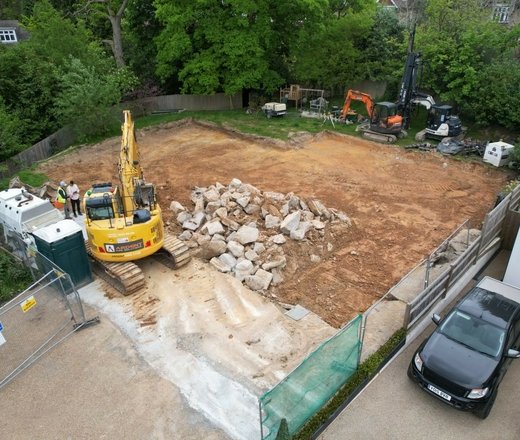Selling your property and moving home ranks high in the lists of the top stressors in life, but the right preparation can help you feel more in control, make the process as easy as possible and reduce your stress. In our second of a six-part series advising on key stages of the process of moving up, down or sideways along the property ladder, Deborah Richards, Founder and Managing Partner of Maddisons Residential, lists the top ten practical steps you can take to smooth the process.
- Deposit
Ensure you will have enough cash to cover what you estimate the deposit will be for your new house, either through savings or equity released from selling your current property. Most lenders require a minimum 5% deposit, but if you are able to put down more you may be able to secure more a favourable interest rate (10% will unlock some better rates, but if you can put down 25% you should be eligible for the most attractive products). You may like to explore saving options with your bank, work on your budgeting or – if you’re buying a new build – explore whether you could be eligible for a government Help To Buy loan.
- Mortgage
For most people, buying a new home will require a mortgage. To make the process as easy as possible for yourself, pull together the documents you need to have ready. Next, start researching the type of mortgage which will suit your financial position best. Choosing the best option can be difficult as there are a lot of options, and it is a fairly complex matter, but doing your homework will enable your mortgage advisor to progress your application as quickly as possible.
- Legal assistance
Because buying and selling property is such a huge financial and legal process, you will inevitably need to appoint a conveyancing solicitor to represent you. Ask your estate agent if they have any recommendations and research some local law firms to find the right one for you.
- Local Authority Search
A local search of the property you want to buy will flag up any planning considerations, such as whether it’s subject to a compulsory purchase order or whether the next-door plot is due to be redeveloped into a housing estate. It’s therefore more than a legal must have, as it could potentially reveal information that could have a significant impact on whether you decide to purchase or not; additionally, many lenders also require a local search, as they also want to ensure their investment is sound. It’s worth researching the types of search your mortgage lender requires and if any extra searches may be useful for your property. Searches usually cost between £50-£250, depending on the type of search.
The government target for returning local searches is a maximum of 10 working days, but in reality they can take significantly longer than that, especially if there is a backlog. Tunbridge Wells Borough Council is typically returning searches in approximately three weeks.
Your conveyancing solicitor will undertake your search for you; ensure you appoint them as soon as possible to avoid your search causing additional delays to your move.
- Understand the chain
Property sales are often linked to a chain, where multiple related transactions must happen at the same time. This means that if one link in the chain breaks – for example if the person you are buying property from has an issue with the property they are about to buy – all the transactions above and below in the chain could fall through. Having full clarity of the nature of the chain you may be linking into will help you manage your expectations.
- Minimise the chain
Alternatively, you may decide to minimise any chain to increase your chances of securing your dream home. For example, selling your current property and moving into a temporary rental would mean you are not dependent on co-ordinating buying and selling at the same time; if you don’t have a chain behind you, you’re also in a stronger position when it comes to putting an offer in on a property, which could help you secure a better price or see off other prospective buyers in the case of multiple bids.
- Identify your non-negotiables
Aside from the nitty gritty, it is important you have evaluated exactly what your criteria for a new home are and that you are assessing each property you view based on them. Maybe you commute and need to live close to a station, or perhaps you have children and need to take local schools into consideration. Decide what is a dealbreaker for you and ensure that you are realistic when viewing properties. You may find area guides, such as our Tunbridge Wells ones, which you can view here, helpful in deciding which location will tick most of your boxes.
- Create a list of things you are willing to negotiate on
Equally as important as identifying your non-negotiable requirements, is deciding where you are willing to compromise. Carefully think about prioritising your criteria into needs, wants and negotiables as this could be helpful when weighing up your options to come to the right decision. At the end of the day, there are few people for whom money is no object, so compromise is likely to be a factor in your house search. The more realistic you are, the more likely you are to find a property that meets most of your key needs and wants.
- Availability for viewings
Consider when you are available for viewings and how you will fit house-hunting into your life. Maybe you are only available on weekends and need to use that time efficiently to view and organise your move. Also assess how you will organise viewings for your current property, if you have one, and liaise with your estate agent to ensure these fit your schedule or whether it would be more appropriate for your estate agent to show round interested buyers.
- Timings
Many people buying and selling houses will have an ideal timetable in mind. You may be keen to make the move before you change job, your new baby arrives or the start of a new academic year. However, the reality is that lots of planets and stars have to align for the right buyers and sellers to come together at the right time, especially given that there are factors outside of your control (such as how long your local search takes) – and even more so with complicated chains. Being realistic and open-minded about the timescale will remove additional, unnecessary stress.
If you want advice and help on selling a property in or around Tunbridge Wells, please contact our experienced team
Market your property with Maddisons Residential
For many, the first point in their house moving journey, is to understand the value of their current home. Whether you want a quick, instant, online indication, or a more robust property specific and individual valuation, we would be delighted to help.





